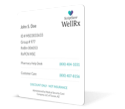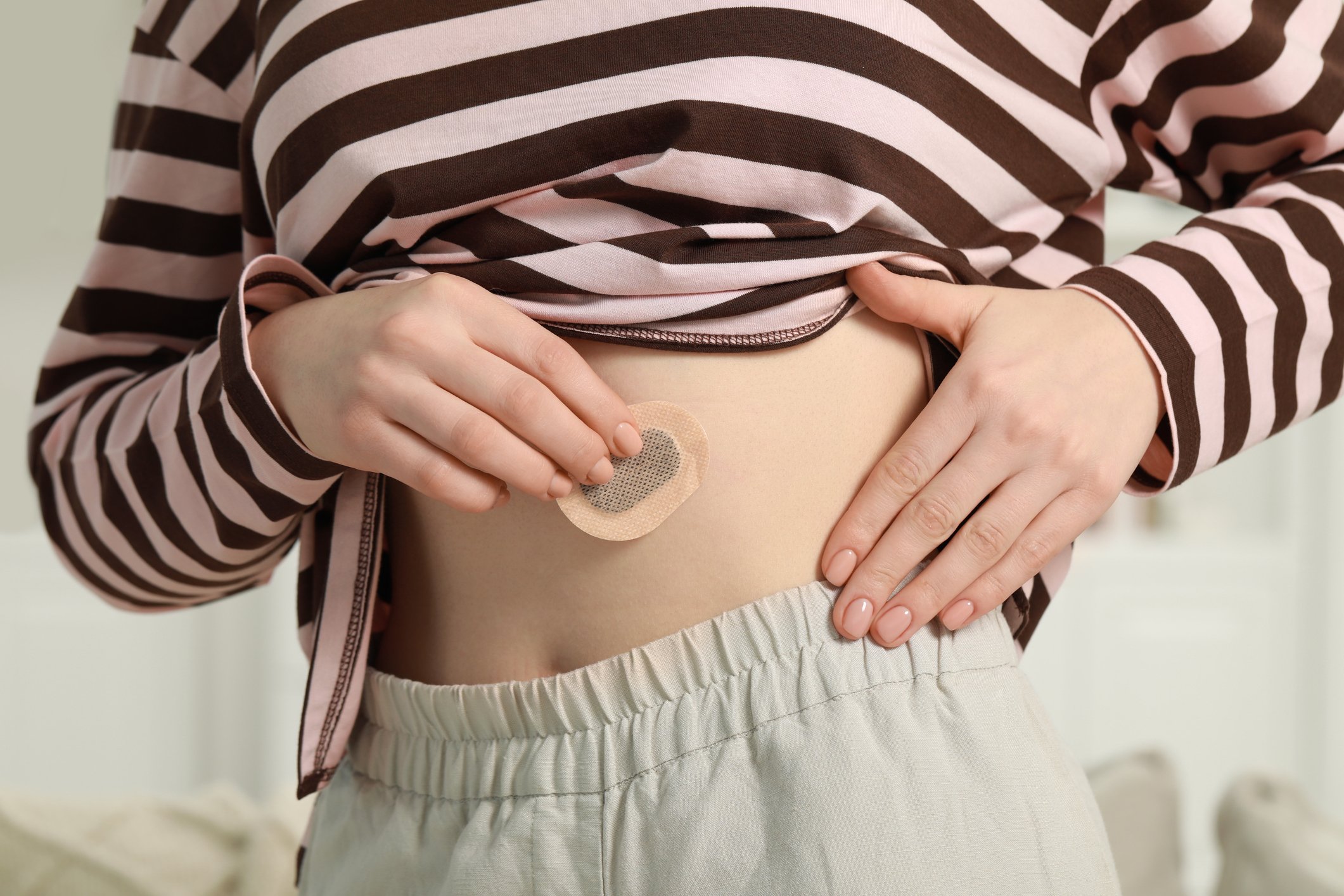What Is the Best Prescription Medicine for Menopause?
By Libby Pellegrini MMS, PA-C
June 18, 2025
Prescription Drugs, Your Health & Wellness

What is the best prescription medicine for menopause?
Menopause is defined as the cessation of menstrual periods. It is a natural event. It occurs for most women between 45 and 55 years old. For many women, this life phase is marked by symptoms caused by hormonal fluctuation, including hot flashes, night sweats, mood swings, brain fog, vaginal dryness, and irritation. Fortunately, many safe medications are available for menopause symptom relief. What is the best prescription medicine for menopause? Read on to learn more.
What is the best prescription medicine for menopause? Common medications for menopause
Changes in a woman’s level of estrogen and progesterone, the reproductive hormones, cause the common symptoms of menopause. Healthcare providers can help ease the transition into menopause and control menopausal symptoms by using medications that mimic, replace, or influence these hormonal levels. Below is a list of common drugs used as menopause treatment options.
| Medicine | Drug Class | Common Dosage (Adults) | WellRx Savings Card |
| Veozah (fezolinetant) | NK 3 receptor antagonist | 45 mg | Link Out |
| Brisdelle (paroxetine) | Selective Serotonin Reuptake Inhibitor (SSRI) | 7.5 mg | Link Out |
| Duavee (conjugated estrogens/bazedoxifene) | Conjugated estrogens/SERM | 0.45–20 mg | Link Out |
| Premarin | Estrogen cream | 0.625 mg/g | Link Out |
| Climara (estradiol) | Estrogen patch | 0.1 mg/24 hr | Link Out |
| Activella (estradiol–norethindrone) | Conjugated estrogens | 1–0.5 mg | Link Out |
When should you take medication for menopause?
If you are suffering from symptoms of menopause, such as vaginal dryness or irritation, painful intercourse, hot flashes, or night sweats, you may consider taking a medication for menopause. Menopause treatment options range from targeting specific symptoms (such as vaginal dryness) to addressing system-wide symptoms. It’s essential to work with your healthcare provider to explore menopause remedies because certain treatments are not appropriate for women with specific medical conditions.
How effective are the common menopause meds?
The most common menopause meds can be highly effective for symptomatic relief. Depending on your specific symptoms, these medications can be tailored to your preferences and medical history.
Menopause treatment options: best menopause prescription medications
If you’re wondering, “What can I take for menopause?” it’s helpful to know that some meds can provide menopause symptoms relief. The latest menopause treatments are listed below.
Estrogen
Taking estrogen can help your body manage menopausal symptoms that derive from lower levels of circulating estrogen hormone. Estrogen is available in pill form to help with system-wide menopausal symptoms or as a topical medicine to help with local symptoms such as vaginal dryness. Examples of estrogen hormone therapy include the medications for menopause below:
- Premarin (topical cream)
- Climara (topical patch)
- Vivelle-Dot (topical patch)
Estrogen–progesterone combinations
Taking estrogen and progesterone together can help lessen menopausal symptoms by replacing the levels of these hormones. Medical professionals recommend that people who still have a uterus take progesterone along with systemic estrogen to avoid excessive thickening of the uterine lining. An example of a combination estrogen–progesterone pill is Activella (estradiol–norethindrone).
NK3 receptor antagonists
This type of medication is specifically designed to reduce hot flashes. It works by blocking the specific receptors in your brain that help regulate body temperature. Veozah (fexolinetant) is an example of this type of medication, and it has FDA approval specifically for treating hot flashes.
Selective serotonin reuptake inhibitors (SSRIs)
This medication class has existed for many years to help treat depression, anxiety disorders, and other mental health conditions. However, some medications in this class, such as Brisdelle (paroxetine), also have an FDA indication for the treatment of hot flashes at low doses.
What is the best antidepressant for menopause symptoms?
Antidepressants can help with menopausal symptoms by reducing hot flashes and mood swings. Certain antidepressants, such as paroxetine (Brisdelle), have a specific FDA indication for treating menopausal symptoms, such as hot flashes, so they may be considered the best antidepressant for menopausal symptoms. However, other antidepressants are also sometimes used to treat hot flashes, as well.
What is the best menopause treatment for hot flashes?
Experts typically recommend hormone therapy as the best menopause hot flashes treatment. Lower levels of reproductive hormones cause hot flashes, so replacing these hormones can help reduce symptoms. Aside from hormones, the antidepressant Brisdelle is a non-hormonal therapy approved for treating hot flashes, as well as the newly approved non-hormonal medication Veozah (fezolinetant).
What is the best menopause treatment for night sweats?
Fluctuations in reproductive hormones are similar to hot flashes and night sweats. For this reason, hormone therapy can be a practical treatment for night sweats. Other non-hormonal medications, such as Brisdelle and Veozah, can help reduce night sweats using different mechanisms than direct hormone replacement.
What is the best menopause mood swings treatment?
Mood swings can be a bothersome menopausal symptom, but they can be lessened with treatment. Hormonal therapy can help improve mood swings in menopause, as well as treatment with an SSRI and lifestyle changes.
Natural menopause remedies
In addition to a prescription for menopause, several natural remedies can help relieve symptoms, including the common remedies below:
- Exercise: Studies have shown that increasing physical activity can effectively reduce menopausal symptoms because exercise affects a woman’s natural testosterone levels.
- Supplements: Certain supplements, such as black cohosh, red clover, soy, and St. John’s wort, may be effective natural remedies for menopause symptoms. However, these supplements are not without their risk of side effects and drug interactions, so make sure to check in with your medical provider before starting a supplement for menopause symptoms.
- Dietary changes: Recent studies have shown that specific diet changes can help improve menopausal symptoms. For example, a plant-based diet that includes soybeans and reduces oils has been shown to help with vasomotor (hot flash) symptoms.
What to take for menopause? Choosing menopause drugs that work best for your symptoms
What can you take for menopause? The answer will depend on your symptoms, personal preferences, and medical history. Follow these tips when choosing medicine for menopause:
- Tip 1: Target your symptoms: Tailor your choice of which symptom bothers you the most. For example, suppose you are looking for a menopause night sweats treatment. In that case, you may choose a different prescription for menopause than if your most noxious symptom is painful intercourse from vaginal dryness.
- Tip 2: Consider your whole-body health: Choose a medication that makes sense within the context of your medical history and current physical health. For example, if you have a history of estrogen-receptor positive breast cancer, you will want to use non-hormonal methods to control your menopause symptoms.
- Tip 3: Consider your delivery method preferences. Medications for menopause come in many different forms, so choose one that is most likely to fit your lifestyle. For example, some women are more likely to use a medication in patch form than one in cream form.
Get your free ScriptSave® WellRx account and start saving on your medications
| If you are seeking medicine to help with the symptoms of menopause, a prescription may be needed. Get your free WellRx account and start saving on your medications. The average participant sees up to 80% savings* on prescription medications. |
*DISCOUNT ONLY – NOT INSURANCE. The program is administered by Medical Security Card Company, LLC.
FAQs related to treatments for menopause
Should you use antidepressants for menopause?
Yes, if you are having specific symptoms, such as hot flashes or mood swings, an antidepressant can help control symptoms of menopause. It’s essential to speak with a healthcare provider about using this method, especially if you have a history of using antidepressants in the past.
What is the safest menopause treatment?
There are many safe menopause treatments available. However, similar to the treatment principles for other medications for other medical conditions, there are usually fewer side effects associated with using a local treatment (such as a cream) than with a system-wide medication (like a pill).
What is the best menopause sweating treatment?
If you’re dealing with sweating with menopause, there are many effective treatment options available. These include hormone therapy options or non-hormonal options, such as Brisdelle or Veozah (fezolinetant).
What helps with menopause hot flashes?
Several medications help with hot flashes, also known as vasomotor symptoms. Using hormones, such as estrogen and progesterone replacement, is an effective way to control vasomotor symptoms. Other methods include antidepressants or NK3receptor antagonists.
What are some natural menopause treatments that really work?
Many women find relief from menopausal symptoms using natural treatment methods. These include increasing physical exercise, making dietary changes, and using supplements under the guidance of a medical provider.
How fast does the medicine for menopause work?
The speed with which a menopause medication works depends on the specific type of medicine. Locally administered medications, such as creams, generally have a more rapid effect than medications such as antidepressants. Ask your medical provider or pharmacist to learn how fast a specific medicine will take effect.
What is the best antidepressant for menopause mood swings?
The best antidepressant for menopause mood swings may be an SSRI or SNRI. One specific antidepressant, paroxetine (Brisdelle), is FDA-approved to help treat hot flashes, so this may be a good option for help with controlling other menopausal symptoms such as mood swings.
What is the best SSRI for menopause?
The best SSRI for menopause is paroxetine, which has the brand name Brisdelle. This is the only SSRI medication for menopause that has a specific FDA indication for the treatment of hot flashes.
When is hormone replacement therapy not recommended?
Hormone therapy can be an effective prescription medication for menopause. However, in certain situations, you should not take hormone replacement therapy. These include: a history of active liver disease, a history of cardiovascular disease, a history of estrogen-sensitive cancer (like ERP-breast cancer), a history of pulmonary embolisms or deep venous thromboses, or undiagnosed vaginal bleeding.
What is the new drug for menopause?
In 2023, a new medication known as Veozah (fezolinetant) was approved for the treatment of the hot flashes that accompany menopause. This medicine can help reduce the intensity and frequency of hot flashes in women who have severe symptoms.
What do doctors prescribe for menopause weight gain?
Weight gain is a common symptom of menopause, and it is caused by the changes in hormones that accompany this period of life. For this reason, hormonal therapy, such as estrogens and progesterones, may help control weight gain. Other changes, such as increasing physical exercise and paying specific attention to diet, may also help.
References:
https://pmc.ncbi.nlm.nih.gov/articles/PMC4476484/
https://www.nia.nih.gov/health/menopause/what-menopause
Recommended Articles









